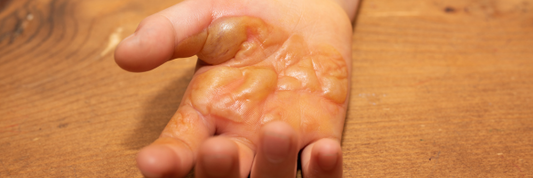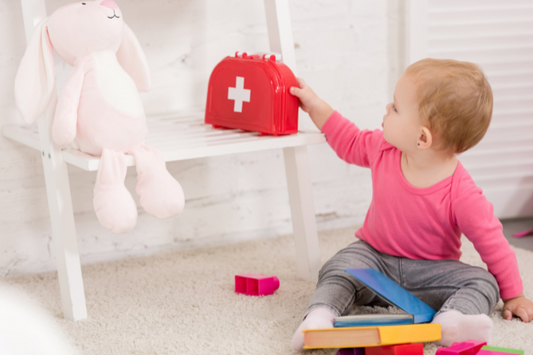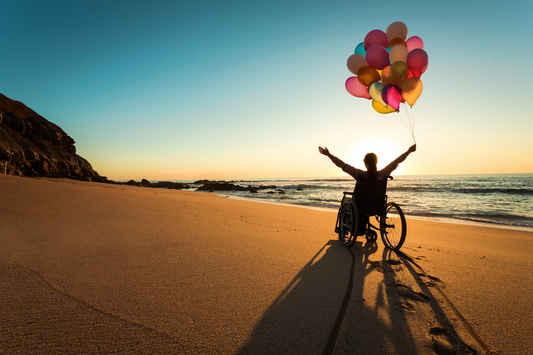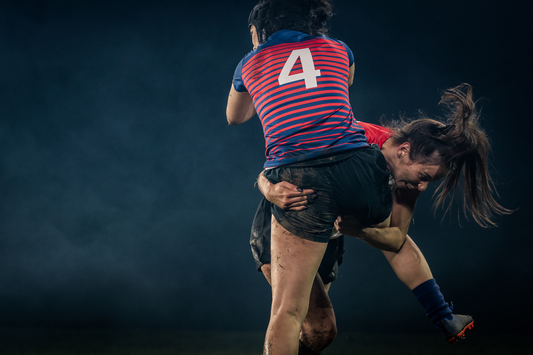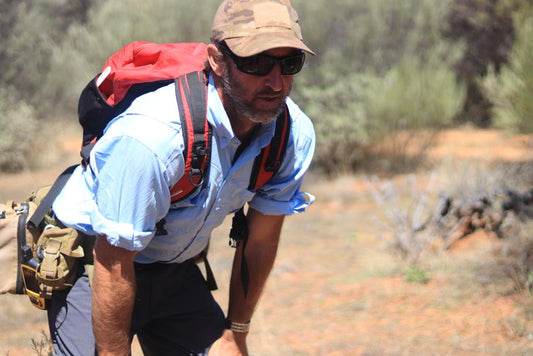Preface
I was extremely grateful when Rick Heaton, tactical tracker and founder of Missing Persons Australia, reached out after seeing our hiking first aid kits online.
Being a former Search & Rescue and First Aid trainer, I jumped at the chance, and asked Rick if he would be willing to share survival first aid tips for my audience.
Within half an hour, I had the blog you are about to read in my inbox!
Rick’s sincere passion to help people was immediately evident.
So Rick, thank you very much for taking the time to provide these invaluable pieces of information for my readers.
Please read, and share what you learn-Samantha
Why do people go missing?
People go missing for several reasons, whether it is due to being cognitively impaired, getting lost on a hike, being swept off the rocks while fishing, becoming immobilised in a remote location, disorientated whilst prospecting, abducted whilst in public, or gone somewhere to suicide.
Whatever the case may be there are always strategies to avoid becoming a Missing Person.
The following are some suggestions, solutions, and practices to help mitigate this risk.
Things to think about when planning to head off the grid.
What would you do if you were Injured or Lost?
Do you enjoy hiking and spending time outdoors?
Are you prepared with the equipment and training to partake in the activity?
Have you had up to date First Aid Training?
Are you equipped to provide First Aid whilst conducting your activity?
Using the principles that you can or have been taught on a First Aid course are a crucial
starting point to aid in your survival, should it be an extended length of time.
Some Search and Rescue Operations in Australia may be delayed, postponed or even unable to conducted due to extreme weather and conditions.
Tactical Survival First Aid Tips
Based on my Military, Search and Rescue and First Aid training here are some tactics you can use to aid in survival for an extended period.
First and foremost, keep yourself and others safe.
When an accident happens slow down and assess the situation.
Don’t become a second casualty by rushing to the aid of your friend. Major Bleed Control
Major Bleed Control
When you can control the bleeding and stabilise the injury, you have a far greater chance of survival.
Arterial Haemorrhage control is vital is the initial stages of applying First aid and must be applied before compressions if they are required.
Tourniquets are great to control massive (Arterial) bleeding.
These should only be applied to the upper limbs, as the artery runs along the single bone in these parts, unlike the lowerlimbs where it runs between two bones. Remember “High and Tight".
If applied correctly it will work and should never be released once applied.

Wound Packing
A rolled-up bandage can also be used as packing to control bleeding in deep lacerations, simply unwrap, insert or lay along the wound and bandage firmly over top.
Elevate and monitor the dressings for seepage. Apply as much pressure as required to stop the bleeding.
Always add on, never remove.
Once you have stabilised your injury, you are now in survival mode.

Survival Mode
Activate your Personal Location Beacon, Satellite Communicator or call for help.
If you are out of Phone service, ensure your phone is switched to flight mode.
This will save your battery.
Seek shelter from heat or cold exposure, be mindful of the injuries.
During the day seek shade to stay cool or Sun to stay Warm.
At night move into the open the best you can.
Thermal detection equipment can be hindered by vegetation and tree canopy.
Do everything slowly, keep the heart rate down.
Lay down and display coloured items that can be seen from the air. This will enhance your probability of detection.
DO NOT Sleep.
Sleeping can be detrimental to you being located, you may miss a fly over, or a rescuer walking by.
If suffering from Hypothermia, sleeping can be fatal.
Carry and use a one-piece whistle to attract attention.
Use occasionally or if you hear or see other people.
Most phones have a flash or torch, you can use this to signal at night.
Ration food, water and supplies.

If you end up lost in the bush there are a couple of methods that you can apply.
1. Stay where you are method.
This is the desirable method as you are most likely still in the Search and Rescue Zone.
If you adopt this method, stay with your vehicle if you are driving, or move to an open clear
area and remain there if you are on foot.
Colourful items such as a sleeping bag can be laid out, to be seen from the air and to obtain
the sunlight during the day and warm it up for night.

2. The Self-Rescue method.
This is the least desirable method as you can quite easily take yourself out of the Search and Rescue Zone.
If attempting to self-rescue, leave signs on your travel.
- Break twigs at face height.
- Tread or create open soil to tread in to leave a visible print.
- Leave squares of toilet paper on branches as you go
(this will avoid you going in circle and give Search teams a direction of travel).
Whilst you may not be able to prevent accidents from happening, you may be able to increase success of the “Search phase” of a Search and Rescue Operation.
By carrying a Personal Locating Beacon (PLB) or Satellite Communications Device you can
gain access to prompt Rescue assets and significantly reduce the time it takes to locate you.

Prevention and preparedness are essential to ensure your safety and that of people you are with.
- Did you tell someone where you were going?
- Did you tell them what time you were expecting to be back?
- Do you have knowledge or mapping of where you intend to go?
- Do you have the fitness level and experience to undertake your activity?

First aid is a life skill. It is a skill that can be used at any time in your life, either to provide
Self Aid, aid to a family member or friend or even a fellow stranger on a hiking trail.
There are many reasons why people require first aid in an outdoor environment, Fractures from slips, trips and falls, snake bites, bites and stings, over exposure from the elements
such as extreme heat or cold, massive haemorrhage and cardiac arrest to name a few.
Surviving these situations can be achieved when you learn, practice and apply the training you are taught.
Be Trained. Be Proficient.
A little bit about Rick
Rick, a Missing Person Search and Rescue maven, volunteers a resource most government authorities don't have - Time.
With 10 years of service in the Australian Army as a Joint Fires Observer, Rick's specialties included intelligence gathering and target acquisition, with a keen focus on surveillance and reconnaissance.
Rick Heaton from Missing Persons Australia on the job. Photo Courtesy of ABC Televison Network
His meticulous attention to detail and analytical skills and intuitive thinking allows him to uncover facts and clues often overlooked.
After leaving the Army, Rick joined the Queensland SES, where he honed his expertise in conducting Search and Rescue missions.
His leadership in these high-stakes operations is admired by his peers and members of his teams.
Today, Rick volunteers his unique skills to the public, utilising his years of expertise and valuable time to help find your missing loved ones.
Below are some valuable resources for further information around Missing Persons in Australia.
The first link is to Ricks website, where you will be able to read more information about survival in different situations.
Missing Persons Australia
https://www.missingpersonsaustralia.net/
National Missing Persons Coordination Centre (NMPCC):
-
This is a crucial resource, providing a national approach to missing persons cases.
-
Website: https://www.missingpersons.gov.au/
-
This site offers:
-
Information on current missing persons cases.
-
Resources for families and friends.
-
Information on how to report a missing person.
-
Details on national initiatives and campaigns.
Australian Federal Police (AFP):
-
The AFP plays a coordinating role in missing persons cases, particularly those that cross state or territory borders.
-
Website: https://www.afp.gov.au/our-services/national-policing-services/missing-persons
-
This site provides:
-
Information on the AFP's role in missing persons investigations.
-
Details on how to report information.
-
Links to relevant resources.
State and Territory Police Websites:
-
Each state and territory in Australia has its own police force, which is responsible for investigating missing persons cases within its jurisdiction. Here are a couple of examples.
-
New South Wales Police Force: https://www.police.nsw.gov.au/can_you_help_us/missing_persons
-
ACT Policing: https://police.act.gov.au/community-safety/missing-persons
-
These sites offer:


